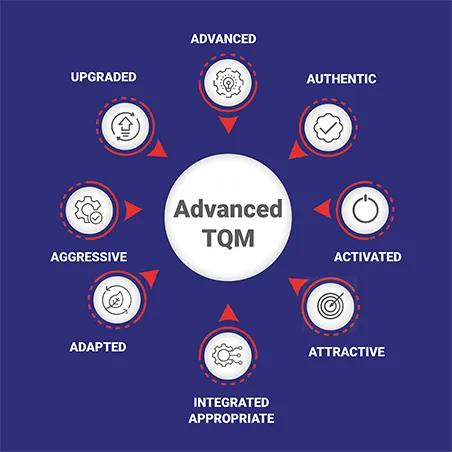
Policy Management and TQM: Its Evolution And Benefits
December 9, 2021
What Should a TQM Workshop for the 21st Century Include?
December 17, 2021The Role of Analytics in Quality Management
One of the most prolific technology innovations that empower quality improvement initiatives for manufacturers is analytics. Quality is a strong foundation that cannot be avoided or given less priority for any reason in any kind of manufacturing initiative. The question is how can manufacturers improve the quality of their products to ensure safer and more sustainable market penetration of the goods globally? Several industries have nurtured and grown their own quality frameworks that ensure strict adherence to quality standards defined for their line of business.
The cost of product recalls can burn a huge hole in the pockets of businesses. Remember the famous Note 7 smartphone battery explosion fiasco that Samsung endured in 2016? The turn of events combined with the product recall is said to have cost the Korean giant a whopping USD 5.3 billion globally.
However, most manufacturers are not aware of the fact that innovations in technology can help improve their quality measures significantly and help them embrace newer business values faster.
As more enterprises establish a digital-first and autonomous mode of operations with smarter machinery and connected infrastructure, there is a large treasure trove of data that is freely available within a manufacturing ecosystem. By tapping into this data and leveraging analytics, manufacturers can uncover hidden insights that help in ensuring higher quality production and improved product acceptance in key markets.
Let us examine the role of analytics in quality improvement for manufacturers:
Accelerate Quality Check
While quality checks cannot be avoided at any cost to ensure business sustainability, there is a great opportunity uncovered by analytics to speed up the quality process significantly. Manual inspection and analysis of metrics collected from across the manufacturing ecosystem can take time and effort. But by leveraging analytics, it becomes easier to automate quality checks.
Identify Risky Elements in Advance
Analytics systems continuously monitor novel data from across plant machinery and product information. Using this data, they can predict potential risks such as upcoming machinery breakdown scenarios, impending downstream quality issues for products or process irregularities, resulting in residual effects accumulating in the backend, and much more. It helps avoid severe disruptions to the business in the future by preventing quality setbacks that may have occurred if warning signals were not propagated on time.
Prescribe Quality Improvement Insights
There can be instances where analytical systems can model successful workarounds for identified flaws or quality issues in a production or product framework. The systems can extract and process data from successful implementations and workarounds in the past and recommend steps such as process corrections or production parameter variations, which when done right, can help rectify deviations from expected quality behaviour in the production line.
Uncover Upstream Quality Issues
There are chances that your vendors or other suppliers may be the reason for quality issues occurring in the manufacturing cycle. Data analytics helps to uncover the root cause of issues by modelling failure or defect conditions around every possible scenario with real-time data. It can identify where potential sources of errors or defects occur through repetitive analysis of data from different historic timelines. Hence, analytics helps to extend quality coverage to upstream activities in manufacturing which is a vital constituent of end-to-end quality improvement initiatives.
Better Productivity
Using analytics, manufacturers can identify relevant insights on raw material utilisation or machine and equipment throughput and operational environment optimisation that can help in delivering better factory output volume without compromising on quality. Analytical systems can deliver real-time insights into expected production effort and raw material requirements, labour and machine deployment schedules, and coordinated logistics to help maximise throughput within a manufacturing facility. Data patterns within processes and workflows can be analysed to detect the most suitable candidates for optimisation - be it processes or machinery or staff schedules - to ensure that production output is increased while quality assurance is guaranteed.
Analytics has the potential to raise the bar of quality management initiatives within a manufacturing business. It leverages factual data to help decision-makers across different levels of quality management take the right measures and implement the right quality checks. Improving production quality helps manufacturers meet their sustainability and growth targets faster and can be a key competitive advantage. Get in touch with us to know more.





